- Home
- Michael Connelly
The Rag
The Rag Read online
The Rag
MICHAEL CONNELLY
©
Copyright 2016 Michael Connelly.
All rights reserved. No part of this publication may be reproduced, stored in a retrieval system, or transmitted, in any form or by any means, electronic, mechanical, photocopying, recording, or otherwise, without the written prior permission of the author.
ISBN: 978-1-4907-7498-5 (sc)
ISBN: 978-1-4907-7500-5 (hc)
ISBN: 978-1-4907-7499-2 (e)
Library of Congress Control Number: 2016910973
Because of the dynamic nature of the Internet, any web addresses or links contained in this book may have changed since publication and may no longer be valid. The views expressed in this work are solely those of the author and do not necessarily reflect the views of the publisher, and the publisher hereby disclaims any responsibility for them.
Any people depicted in stock imagery provided by Thinkstock are models,
and such images are being used for illustrative purposes only.
Certain stock imagery © Thinkstock.
Trafford rev. 07/08/2016
www.trafford.com
North America & international
toll-free: 1 888 232 4444 (USA & Canada)
fax: 812 355 4082
Contents
Chapter I
Chapter II
Chapter III
Chapter IV
Chapter V
Chapter VI
Chapter VII
Chapter VIII
Chapter IX
Chapter X
Chapter XI
Chapter XII
Chapter XIII
Chapter XIV
Chapter XV
Chapter XVI
Chapter XVII
Chapter XVIII
Chapter XIX
Chapter XX
Chapter XXI
Chapter XXII
Chapter XXIII
Chapter XXIV
Chapter XXV
Chapter XXVI
Chapter XXVII
Chapter XXVIII
Chapter XXIX
Chapter XXX
Chapter XXXI
Chapter XXXII
Chapter XXXIII
Chapter XXXIV
Chapter XXXV
Chapter XXXVI
Chapter XXXVII
Chapter XXXVIII
Chapter XXXIX
Chapter XL
Chapter XLI
Chapter XLII
Chapter XLIII
Chapter XLIV
Chapter XLV
Chapter XLVI
Chapter XLVII
Chapter XLVIII
Chapter XLVIX
Chapter I
He was assigned to rat-killing duty in the old Marriott Hotel on the edge of the French Quarter when he found it. He wasn’t looking for it. He wasn’t looking for anything but rats, and he was doing that only halfheartedly. He spotted it when he was shifting a pile of debris behind what was left of the front desk in the once-ornate lobby of this high-end New Orleans, Louisiana, hotel. It caught his eye because of its colors—pretty colors that he was only vaguely familiar with.
There was no color in his world, at least no pretty colors. Everything was gray—his uniforms, his barracks, even the New Orleans landscape was just a dull gray—or so it seemed to Inmate 6024. He held the colored rag he had found in his filth-encrusted hands and glanced around the wrecked lobby to see if he could spot anything similar that the rag might have been torn from. Even in the poor light that filtered in from the smashed windows, he could see there was nothing of color remaining on the ground floor of the Marriott or suspect anything similar was on the upper floors.
This building, as well as most of the others in the historic Vieux Carré area of New Orleans, had been looted many years ago. Even the buildings that had survived the devastation of Hurricane Katrina had not been immune from the human insanity that had occurred a few years later. Inmate 6024 knew there were a few buildings in good condition in the area, but they housed the bosses and were basically self-contained units that contained luxuries that inmates and ordinary citizens were only vaguely aware of.
Since he was only a grade 5 inmate, he knew he would never be allowed inside one of those grand lodgings. Only grade 1 inmates were allowed the “privilege” of working for the bosses. Not that it really mattered to him. In fact, very little mattered to one whose brain barely functioned above the survival-mode level. He sometimes had flashbacks of vague memories of a time when he was another person entirely, a time when things did matter, but now he could not remember what those things were. He couldn’t even remember what he had done to warrant the bosses putting him in the New Orleans detention camp.
All he really knows these days is that the bosses give him food, clothing, a bed, and his daily pills. They also gave him some very powerful marijuana to smoke every night to make him feel good and forget about his plight. Inmate 6024 is not even sure who the bosses are. He just knows that they work for the Socialist Republic of America (SRA), often simply referred to as the state, and they are in charge of everyone and everything.
Inmates were not allowed to have any personal possessions, and this colorful rag would be considered a personal possession and confiscated when he returned to the compound. He would be severely punished for such a transgression. Yet he felt compelled to keep it, so the question is how would he sneak it in? For some reason, he felt the answer might lie with an older man in the detention center that he only knew as Inmate 4031. A man who had seemed to develop a special interest in him, almost like the father he only vaguely remembered.
The old man once told him that he knew of a section of the high chain-link fence surrounding the compound that was not covered by the security cameras. He said that if the young man ever wanted to sneak something important into the compound, he just let the elderly gentleman know, and he would meet him as he passed that part of the fence and a small item could be handed to him through the fence. Inmate 6024 decided to try that so he hid the rag in the hotel, knowing that he would be assigned the same duties at the same location the next day.
That night, he confided to his fellow inmate about what he had found and his desire to get it into the prison. The man became very agitated when he heard the description of the rag and vowed to help. Everything went as planned the next evening, and that night, after lights out, the two men met in the bathroom where they could see if they stood under reflection of the outside lights that were shining through the small windows.
As the older man unfolded the rag, he said something that stunned the young man, “Before I give you this and we talk about what it means, I want you to tell me your name. My name is Ray.”
The young prisoner hesitated because he knew that the use of real names was forbidden. Yet he instinctively trusted this man, so he said, “My name was—is James. I think I remember my parents calling me Jamie.”
“OK, Jamie. Now we can talk as men instead of as robots created by our captors. How long ago did you stop taking the mandatory drugs?”
The young man stiffened up and hesitated again. He really didn’t know this man, so he lied, “I am still taking the pills as required.”
“No,” replied Ray. “If you were still on the full dose, you would have not even have noticed what you found at the Marriott, much less asked me to help you sneak it into the compound. I just stuck my neck out for you, so it is time we trust each other. I suspect you have reduced the amount you are taking, and that is why you are not showing any of the obvious signs of withdrawal.”
Jamie still hesitated, but he knew Ray was right. He had put himself at risk, and so he deserved the truth. “I had a dream several weeks ago. I think it was about my father and mother, but I could not remember the details. Then I realized that I could not even remember what they looked like or any of the details about my life before I came here. I want to remember, and something told me that it was the pills that were keeping that from happening, so I started pretending to take them and spitting them out. I have continued to use the marijuana, and so far, I can still not remember much, so getting off the pills is not enough.”
“It takes some time,” replied Ray, “but you obviously have regained the ability to think in the present, and the memories will return. Now, let’s talk about this piece of cloth.”
They talked for a few hours, and Jamie felt it all slowly to come back to him. He had not recognized the rag immediately, but it had seemed vaguely familiar. Ray told him that it was the flag of the United States of America, which was what their country had been named for almost 250 years while it was a constitutional republic. The flag had been banned even before the new government took over and the country was now named the Socialist Republic of America.
The USA had not died overnight. It took years of effort by people calling themselves progressives who believed that they were the elite and were destined to control the lives and destinies of everyone else. They were totalitarians following in the footsteps of the Communists, Nazis, and Fascists who had gone before them in other countries.
The campaign was steady and insidious. They started by taking control of most of the news media outlets and turning them into propaganda organs for the progressive political agenda. At the same time, they gradually took control of the universities and then of the entire public school system. The education system was transformed from a place where students learned how to prepare themselves to live in the real world and be productive members of a free society to an agent for reeducation.
Instead of being taught to honor their country and its history, students were trained to believe that freedom was evil and individualism and personal responsibility had to be replaced by government control of all aspects of life. Personal freedoms were replaced by collectivism and subjugation of individuals to the will of the state.
Freedom of speech and expression was replaced by political correctness that allowed the government to monitor and control what people said, did, and even thought. The Judeo Christian religious foundation of the United States came under massive attack. Freedom of religion was replaced by freedom from religion.
That was all they had time to talk about that first night, and Jamie had many questions that Ray said would be answered later.
Chapter II
Ray and Jamie met every night for at least an hour, and much more of the story was revealed to the young man. He learned that the progressives had driven the vibrant American economy into the ground, putting millions of people out of work. This often left families with their only choice to survive being the reliance on government programs that were specifically designed to make them dependent upon and subservient to the government.
They soon learned that they had to surrender all their freedoms to the government if they wanted to stay on the federal dole. Any resistance to the government was severely punished. One of the requirements was for people to surrender any firearms they might own. This was part of an ongoing effort to disarm the American people by destroying the right to keep and bear arms guaranteed by the Second Amendment of the Constitution.
The disarming of the citizens had started slowly but had gained steam over the years. Throughout history, dictatorships had only been successful if they had succeeded in disarming the indigenous population. In the United States, various restrictions on firearm ownership had been passed by Congress over the years. But firearms ownership in the country had actually grown as more and more Americans realized that they needed to protect themselves from the rising crime and violence and also possibly from their own government.
The progressives saw that more proactive action had to be taken, so they took a page from Adolf Hitler’s playbook. Hitler had been named chancellor of Germany in 1933 and immediately began efforts to disarm the German people, beginning with the military veterans. They represented the greatest threat to a dictatorship in Germany, and the progressives in the US government saw the same potential threat from American military veterans.
Using the Veterans Administration that was supposed to be an agency to take care of and protect veterans and using other federal agencies, the government instituted a program to declare veterans incompetent to handle their own financial affairs and based on that declaration also declare them too mentally ill to be allowed to own, purchase, or possess firearms and ammunition.
After all, as members of the military, American veterans had taken an oath to “protect and defend the Constitution of the United States against all enemies, foreign and domestic.” That oath did not end when they left the military, so there were millions of highly trained veterans who posed a danger to the emerging dictatorship and therefore they must be disarmed.
Despite resistance by many veterans, the program was expanded to include senior citizens receiving Social Security benefits and then to others receiving federal or, in some cases, state benefits. Yet many people refused to voluntarily turn in their firearms, particularly in the face of increasing violent crime by gangs and left-wing political activists who mysteriously had all the weapons they needed.
Gradually, the progressives had succeeded through persistent propaganda in dividing the American people according to race, religion, and income. People were told they were entitled to have what other people had worked for even if they were unwilling to work themselves. Criminal activity was excused, and people who entered the country illegally were allowed to stay even if they committed crimes.
However, all this had not proved enough to bring down the United States completely. Something else was needed—something catastrophic. It was an electromagnetic pulse (EMP) attack on the United States that did not go exactly as planned. In fact, it went terribly wrong.
Chapter III
Ray was an enigma, even to his captors. His full name was Raymond Thibodeaux, and he had been raised in the southwest part of Louisiana by a Cajun mother and a father of Irish and Cajun ancestry. He was just over six feet tall, stout, and a lot stronger than he looked. His weathered appearance made it hard to gauge his age. All that his captors really knew about him was that he was an accomplished chef who had once owned one of the finest restaurants in the New Orleans French Quarter.
He had been arrested several years earlier when he was caught feeding some members of the patriot resistance late one night in his restaurant. This was an action punishable by death for everyone involved, and the members of the resistance who were caught were immediately executed. However, Raymond was spared because some of the administrators of the detention center were aware of his reputation as a culinary artist. The food they received in their dining hall was much more plentiful and far superior to the meager rations provided to the prisoners, but its quality of preparation left much to be desired.
Ray was seen as the solution to this problem, so the plan was not to sentence him to death but to put him in the detention center and assign him to supervise the preparation of meals for the prison guards and administrators. His captors were convinced that they knew everything they needed to about Raymond Thibodeaux, but they were wrong. Before Raymond had become an accomplished chef, he had been a Green Beret major in the US Army. The problem for the feds was that all the military records in the Pentagon had been destroyed in the EMP attack. So there was no way for the government to identify the military veterans and keep track of them. That was not the way it was supposed to have worked out.
The EMP attack had actually been coordinated by the progressives in the US government. The President had worked with the rogue governments in Nort
h Korea and Iran that had obtained nuclear weapons and essentially hired them to make the attack so it could not be traced back to the federal government. The attack was supposed to be limited and only target the states that would be the most troublesome such as those in the South, the Southwest, and the upper Midwest and Northwest.
This would cause the electric grids to be shut down in those areas for months and possibly years. Chaos would be the norm. The US economy would be brought to its knees, and everyone would have to rely on the government for survival. It would control the supply of food, water, medicine, and fuel and limit those supplies to cities and groups of people that professed complete loyalty to the new government.
The fact that there would be food riots in the big cities and millions of people would ultimately die in the chaos from starvation and lack of medical care would not be a negative but would get rid of the undesirables such as Christians, conservatives, gun owners, and members of minority races who could not be used as cannon fodder but might drain the system of resources. In other words, it didn’t matter how many died or who they were as long as the elitists remained in control and did suffer from any deprivations themselves.
Before the attack took place, leftists in the government secured massive amounts of weapons, ammunition, food, water, and medical supplies. The military equipment had been placed in secure areas for years, but while every effort had been made to purge the military of those men and women who might be loyal to their oath to protect and defend the Constitution against all enemies foreign and domestic instead of being loyal to the new dictatorship, there were still many members of the military that could not be trusted. They were isolated from sensitive positions that might provide them with access to heavy weapons and equipment.
The new regime was also aware that the twenty-three million veterans in the country would be a major problem. Government efforts to disarm them and other elements of the population had been somewhat successful, but many people had managed to hide their weapons. The plan was to use the government databases of veterans and Social Security recipients to keep track of those who were suspected of still owning firearms or would otherwise oppose the government. The limited EMP attacks were designed to spare Washington DC and surrounding areas from being affected and would therefore maintain access to these databases, and the regime could proceed to arrest and incarcerate all these people immediately following the attack.

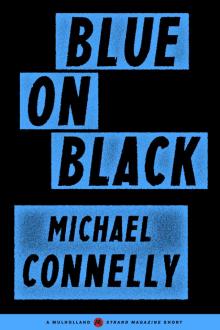 Blue on Black
Blue on Black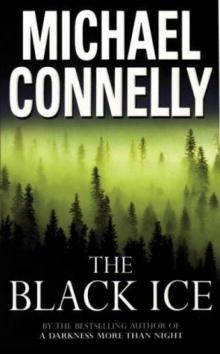 The Black Ice (1993)
The Black Ice (1993) Crime Beat: A Decade of Covering Cops and Killers
Crime Beat: A Decade of Covering Cops and Killers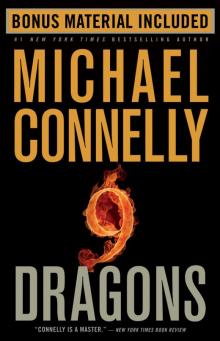 Nine Dragons
Nine Dragons The Late Show
The Late Show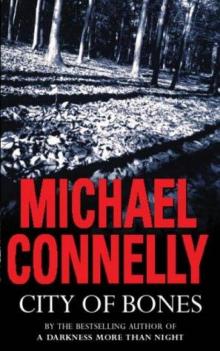 City of Bones
City of Bones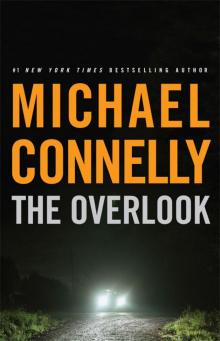 The Overlook
The Overlook The Crossing
The Crossing The Poet (1995)
The Poet (1995)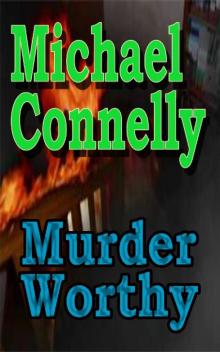 Murder Worthy
Murder Worthy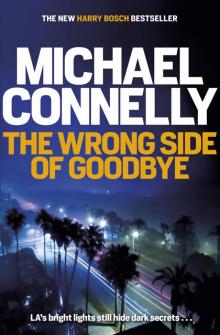 The Wrong Side of Goodbye
The Wrong Side of Goodbye Harry Bosch Novels, The: Volume 2
Harry Bosch Novels, The: Volume 2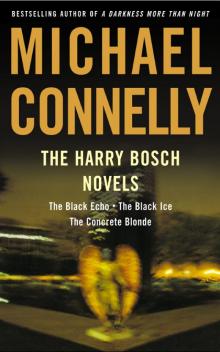 The Harry Bosch Novels
The Harry Bosch Novels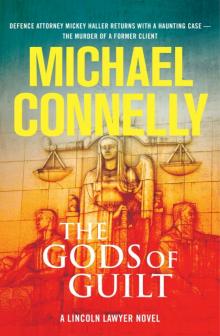 The Gods of Guilt
The Gods of Guilt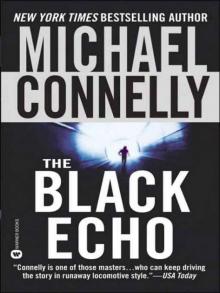 The Black Echo
The Black Echo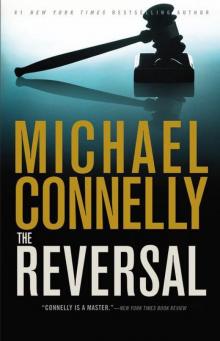 The Reversal
The Reversal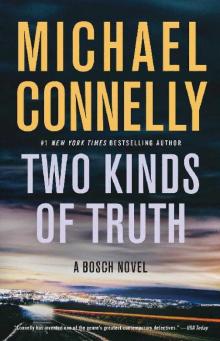 Two Kinds of Truth
Two Kinds of Truth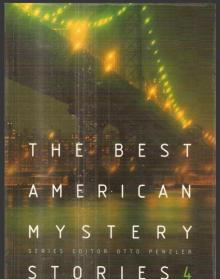 The Best American Mystery Stories 2003
The Best American Mystery Stories 2003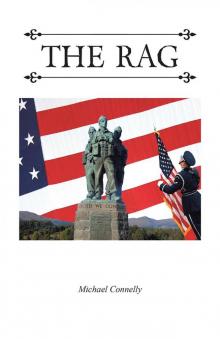 The Rag
The Rag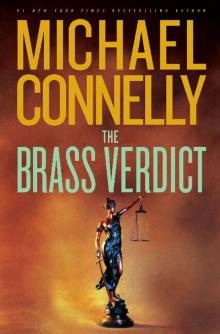 The Brass Verdict
The Brass Verdict The Black Echo (1992)
The Black Echo (1992)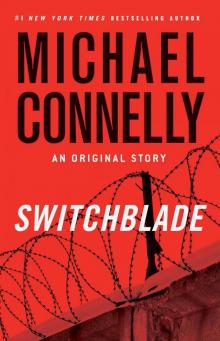 Switchblade
Switchblade The Last Coyote
The Last Coyote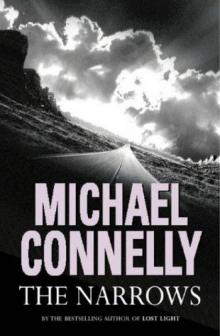 The Narrows
The Narrows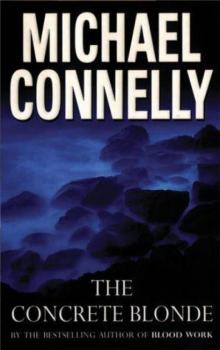 The Concrete Blonde (1994)
The Concrete Blonde (1994)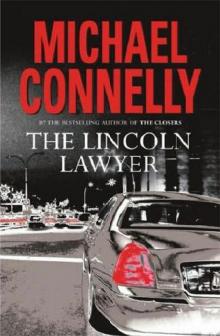 THE LINCOLN LAWYER (2005)
THE LINCOLN LAWYER (2005)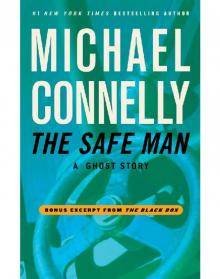 The Safe Man: A Ghost Story
The Safe Man: A Ghost Story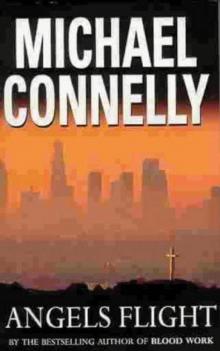 Angels Flight (1998)
Angels Flight (1998) Void Moon
Void Moon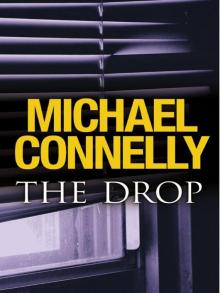 The Drop
The Drop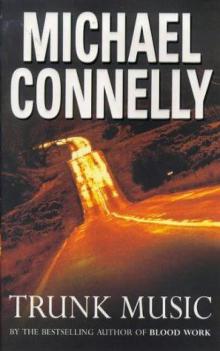 Trunk Music
Trunk Music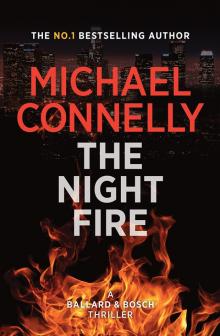 The Night Fire
The Night Fire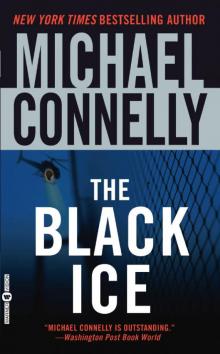 The Black Ice
The Black Ice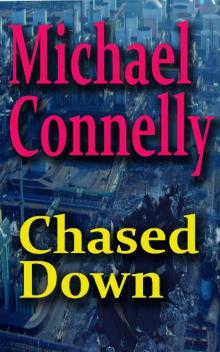 Chased Down
Chased Down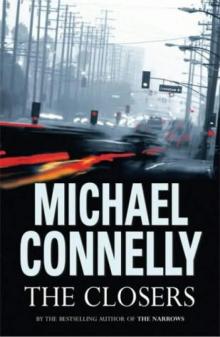 The Closers
The Closers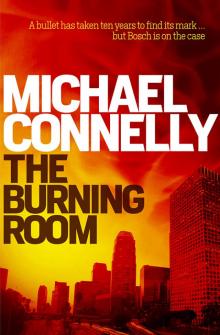 The Burning Room
The Burning Room Angels Flight
Angels Flight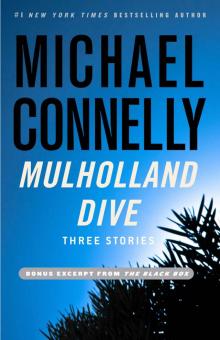 SSC (2012) Mulholland Drive
SSC (2012) Mulholland Drive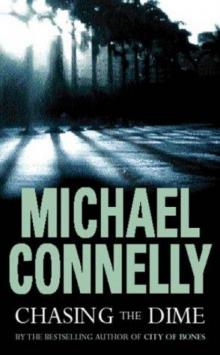 Chasing the Dime
Chasing the Dime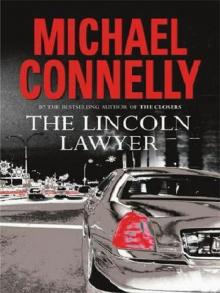 The Lincoln Lawyer
The Lincoln Lawyer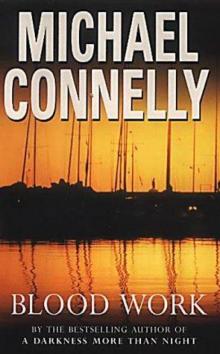 Blood Work (1998)
Blood Work (1998) Echo Park
Echo Park A Darkness More Than Night
A Darkness More Than Night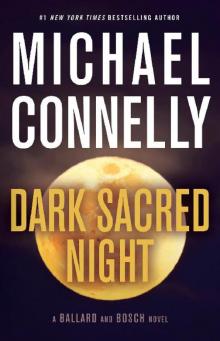 Dark Sacred Night - Ballard and Bosch #1;Renée Ballard #2
Dark Sacred Night - Ballard and Bosch #1;Renée Ballard #2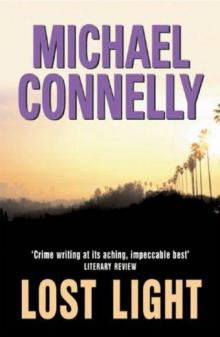 Lost Light
Lost Light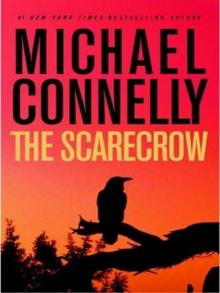 The Scarecrow
The Scarecrow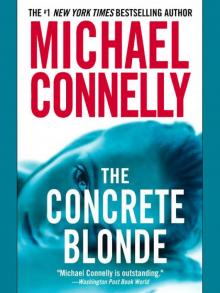 The Concrete Blonde
The Concrete Blonde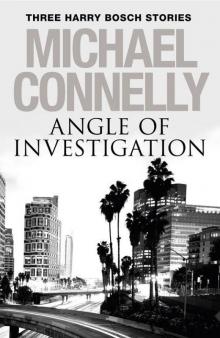 Angle of Investigation
Angle of Investigation Suicide Run: Three Harry Bosch Stories
Suicide Run: Three Harry Bosch Stories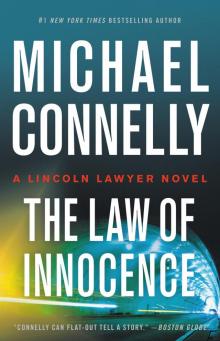 The Law of Innocence
The Law of Innocence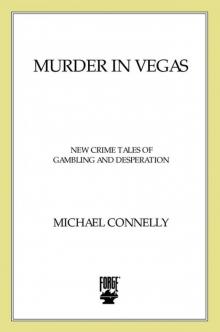 Murder in Vegas: New Crime Tales of Gambling and Desperation
Murder in Vegas: New Crime Tales of Gambling and Desperation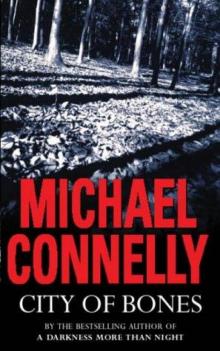 City Of Bones (2002)
City Of Bones (2002)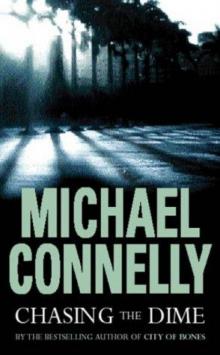 Chasing the Dime (2002)
Chasing the Dime (2002)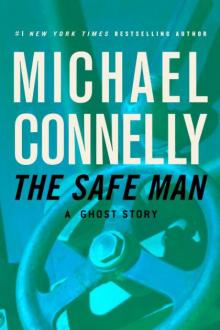 The Safe Man
The Safe Man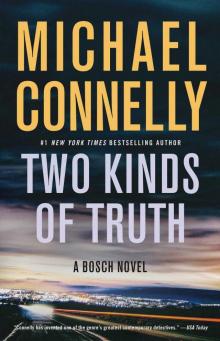 Two Kinds of Truth (A Harry Bosch Novel)
Two Kinds of Truth (A Harry Bosch Novel)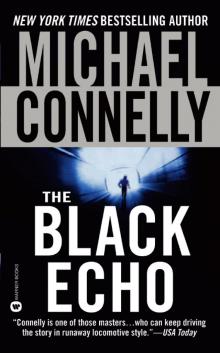 Harry Bosch 01 - The Black Echo
Harry Bosch 01 - The Black Echo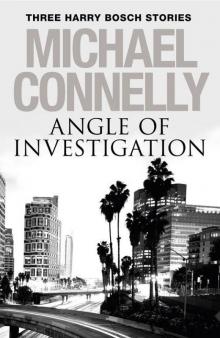 Angle of Investigation: Three Harry Bosch Short Stories
Angle of Investigation: Three Harry Bosch Short Stories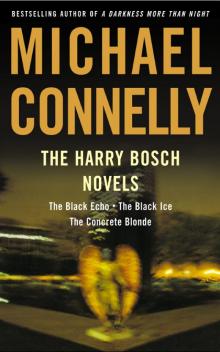 The Harry Bosch Novels Box Set 1
The Harry Bosch Novels Box Set 1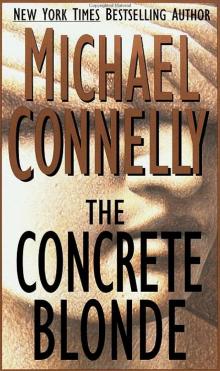 The Concrete Blonde hb-3
The Concrete Blonde hb-3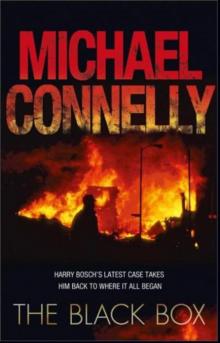 The Black Box hb-18
The Black Box hb-18 Short Stories
Short Stories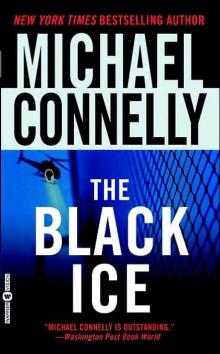 The Black Ice hb-2
The Black Ice hb-2 The Last Coyote (1995)
The Last Coyote (1995)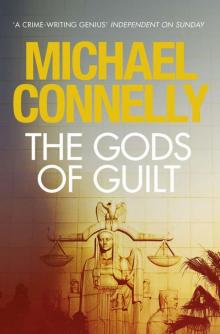 The Gods of Guilt mh-5
The Gods of Guilt mh-5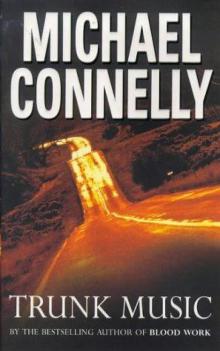 Trunk Music (1996)
Trunk Music (1996)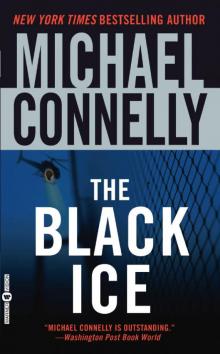 Harry Bosch 02 - The Black Ice
Harry Bosch 02 - The Black Ice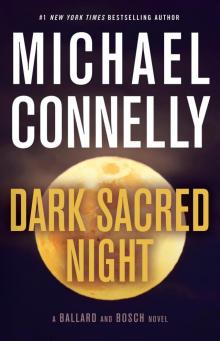 Dark Sacred Night
Dark Sacred Night Cielo Azul
Cielo Azul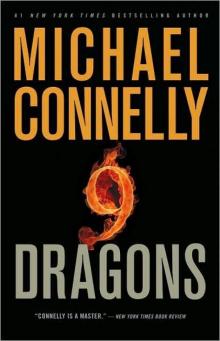 9 Dragons
9 Dragons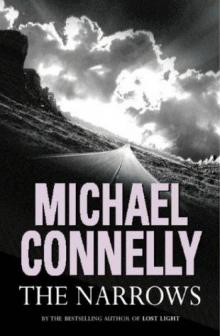 The Narrows (2004)
The Narrows (2004)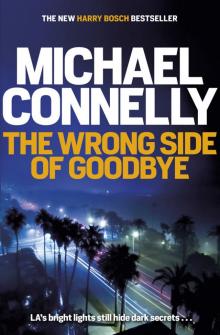 The Wrong Side of Goodbye (Harry Bosch Series)
The Wrong Side of Goodbye (Harry Bosch Series) In The Shadow Of The Master: Classic Tales by Edgar Allan Poe
In The Shadow Of The Master: Classic Tales by Edgar Allan Poe Void Moon (1999)
Void Moon (1999)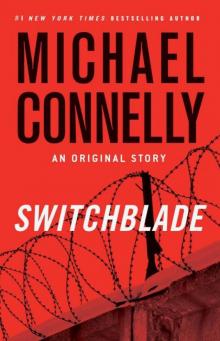 Switchblade: An Original Story (harry bosch)
Switchblade: An Original Story (harry bosch) The Harry Bosch Novels, Volume 2
The Harry Bosch Novels, Volume 2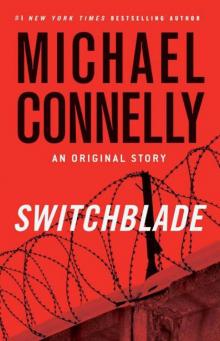 Switchblade: An Original Story
Switchblade: An Original Story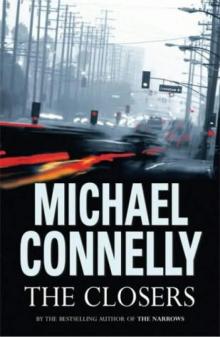 The Closers (2005)
The Closers (2005) Crime Beat
Crime Beat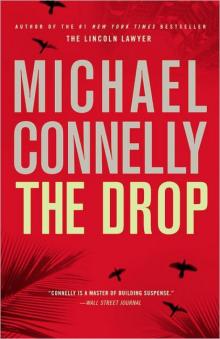 The Drop hb-17
The Drop hb-17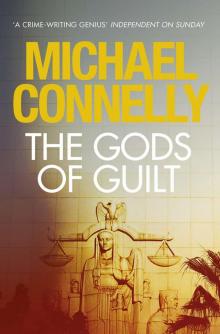 The Gods of Guilt (Mickey Haller 5)
The Gods of Guilt (Mickey Haller 5)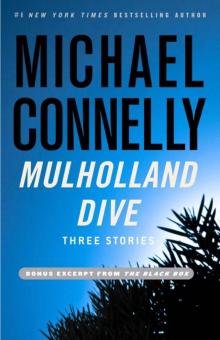 Mulholland Dive: Three Stories
Mulholland Dive: Three Stories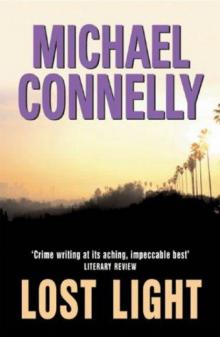 Lost Light (2003)
Lost Light (2003)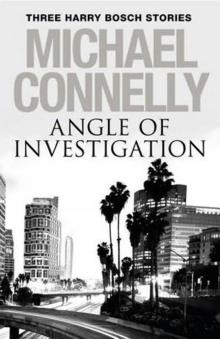 Angle of Investigation: Three Harry Bosch Stories
Angle of Investigation: Three Harry Bosch Stories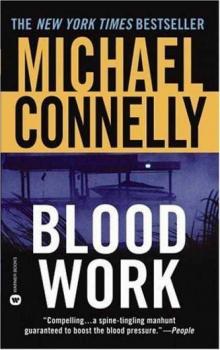 Blood Work
Blood Work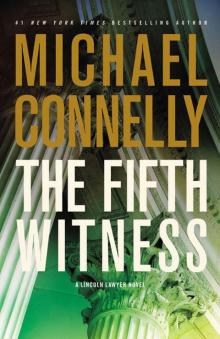 The Fifth Witness: A Novel
The Fifth Witness: A Novel A Darkness More Than Night (2000)
A Darkness More Than Night (2000)